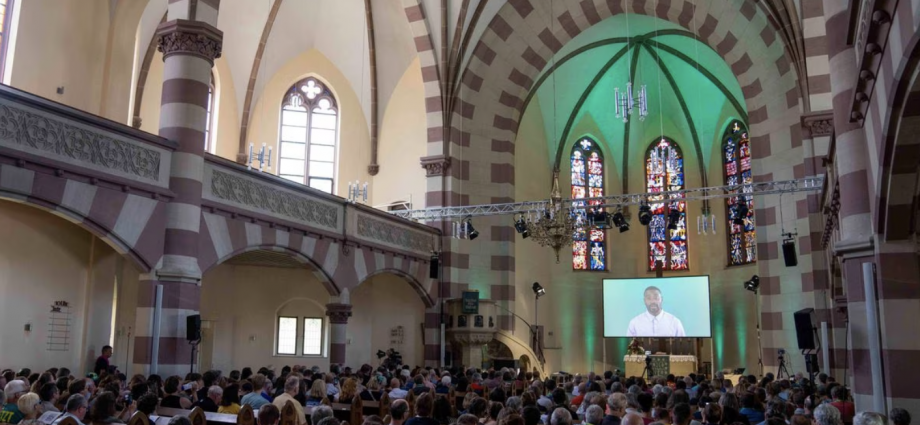According to a report by the Associated Press, an experimental church service powered by ChatGPT took place last Friday at St. Paul’s church in Fürth, Germany, with more than 300 attendees. During the 40-minute sermon, text generated by OpenAI’s ChatGPT chatbot was displayed on a television screen above the altar and delivered by avatars.
The ChatGPT chatbot, initially portrayed as a bearded man with a fixed expression and a monotone voice, addressed the congregation by stating, “Dear friends, it is an honor for me to stand here and preach to you as the first artificial intelligence at this year’s convention of Protestants in Germany.”
This unique service was a part of the Deutscher Evangelischer Kirchentag (German Evangelical Church Congress), a biennial event in Germany that attracts tens of thousands of attendees. The service, conceptualized by Jonas Simmerlein, a theologian and philosopher from the University of Vienna, featured elements such as prayers and music. Simmerlein mentioned that about 98 percent of the service was generated by the machine, with the remaining 2 percent involving his guidance.
The sermon, presented by computer-generated avatars of two men and two women, centered on themes like leaving the past behind, overcoming the fear of death, and maintaining faith. Simmerlein provided the AI with prompts, including the inclusion of psalms, prayers, and a blessing at the end, resulting in a comprehensive church service.
Reactions to the machine-led service were mixed. Some attendees found the computer avatars’ deadpan delivery and monotonous speech off-putting, while others were pleasantly surprised by how well it worked. The intention behind the AI-powered service was not to replace religious leaders but to utilize AI as a tool to assist them, potentially aiding in sermon preparation and allowing pastors more time for individual spiritual guidance.
Simmerlein emphasized the growing role of artificial intelligence in our lives and the need to adapt to it. The event garnered significant interest, reflecting the novelty of applying AI to traditionally human-moderated situations, even if it essentially involved a human selecting output from a large language model (LLM).
Looking ahead, there may be concerns about pastors relying on LLMs for sermon guidance, potentially leading to novel interpretations of religious doctrine due to the technology’s ability to generate new ideas. As a result, some foresee future debates or misunderstandings akin to mistranslations between ancient languages.

